
The Huilliche[wi.ˈʝi.tʃe], Huiliche or Huilliche-Mapuche are the southern partiality of the Mapuche macroethnic group of Chile. The Huilliche are the principal indigenous population of Chile from Toltén River to Chiloé Archipelago. According to Ricardo E. Latcham the term Huilliche started to be used in Spanish after the second founding of Valdivia in 1645, adopting the usage of the Mapuches of Araucanía for the southern Mapuche tribes. Huilliche means 'southerners'

Luis Antonio Eguiguren Escudero was a Peruvian educator, magistrate, historian and politician. He was the director of the General Archive (File) of the Nation (1914), Alderman of Lima (1914–1920), Mayor of Lima (1930), President of the Constituent Congress (1930–1932), founder and leader of the Peruvian Social Democratic Party. He won the Peruvian presidential election of 1936, but his victory was ignored by the Congress and the then-President Oscar R. Benavides, who claimed that he had won with votes of the APRA. He presided over the Supreme Court and the Judiciary in 1953 and 1954.

The Parliamentary Era in Chile began in 1891, at the end of the Civil War, and spanned until 1925 and the establishment of the 1925 Constitution. Also called "pseudo-parliamentary" period or "Parliamentary Republic", this period was thus named because it established a quasi-parliamentary system based on the interpretation of the 1833 Constitution following the defeat of President José Manuel Balmaceda during the Civil War. As opposed to a "true parliamentary" system, the executive was not subject to the legislative power but checks and balances of executive over the legislature were weakened. The President remained the head of state but its powers and control of the government were reduced. The Parliamentary Republic lasted until the 1925 Constitution drafted by President Arturo Alessandri and his minister José Maza. The new Constitution created a presidential system, which lasted, with several modifications, until the 1973 coup d'état.
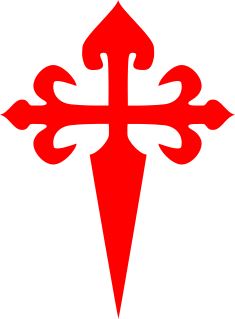
The United Conservative Party was a right-wing Chilean political party founded in December 1953 after the merger of the Traditionalist Conservative Party and a faction of the Social Christian Conservative Party, issued from the Conservative Party. It supported for the 1958 presidential election the candidacy of Jorge Alessandri and participated, along with the Liberal Party and supporters of former president Carlos Ibáñez del Campo, in its government. In 1962, it participated in the Democratic Front of Chile center-right coalition which opposed the left-wings FRAP coalition and supported for the 1964 presidential election Eduardo Frei Montalva.

The Destruction of the Seven Cities is a term used in Chilean historiography to refer to the destruction or abandonment of seven major Spanish outposts in southern Chile around 1600 caused by the Mapuche and Huilliche uprising of 1598. The Destruction of the Seven Cities is in traditional historiography the defining event that marks the end of the Conquest period and the beginning of the proper colonial period.

The history of Pichilemu began around the 16th century, when Promaucaes inhabited the modern Pichilemu region. According to Chilean historiographer José Toribio Medina on his book Los Restos Indígenas de Pichilemu (1908), Spanish conqueror Pedro de Valdivia gave Topocalma encomienda, in which Pichilemu was supposed to be, to Juan Gómez de Almagro, on January 24, 1544.
The Revolution of 1851 was an attempt by Chilean liberals to overthrow the conservative government of president Manuel Montt and repeal the Chilean Constitution of 1833. After various battles and sieges, by late December 1851 government forces had subdued the revolutionaries.
Julio Valdeón Baruque was a historian of Spain.
The Popular Socialist Party was a Chilean centre-left political party that existed between 1948 and 1957. It was the result of the division of the Socialist Party of Chile in 1948 by voting and promulgation of Law No. 8,987 of Defense of Democracy in which the PS was divided in its vote and support among pro-communist and anti-communist.
Mañil or Magnil was a Mapuche lonko who fought in the 1851 Chilean Revolution and led an uprising in 1859. He was the main chief of the Arribanos and the father of Quilapán who led Mapuche forces in the Occupation of Araucanía.
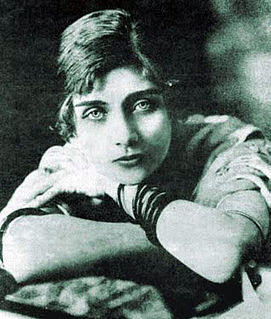
María Teresa de las Mercedes Wilms Montt, also known as Thérèse Wilms Montt, was a Chilean writer, poet, and anarcha-feminist. Described as "embodying sexual aberrance and social prophesy", she was a friend of the writers Ramón Gómez de la Serna, Enrique Gómez Carrillo, Joaquín Edwards Bello, Víctor Domingo Silva, and Ramón Valle-Inclán.
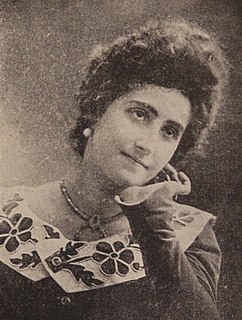
Delia Ducoing, better known as Delia Ducoing de Arrate or Isabel Morel (1885-?), was a Chilean writer, journalist, editor and feminist activist. She was best known for her work on behalf of women's rights in the political, social and civil sphere in Chile since 1914. On October 26, 1927, she founded the Women's Union of Chile in the city of Valparaíso with Gabriela Mandujano and Aurora Argomedo, assuming its presidency on May 6, 1928. As a writer, one of her best known works is the book Charlas femeninas (1930), one of the first publications which systematized feminist thought in Chile. She also wrote and edited the magazine Nosotras in the early 1930s.

Political Evolution, also known in Spanish by its shorthand Evópoli, is a Chilean centre-right political party, founded in 2012. The party defines itself as a liberal platform for the people who look for a "modern centre-right who proposes as the central axis of their proposal the appreciation of diversity, the emphasis on encouraging local communities and the pursuit of social justice".
María Luisa Fernández Bascuñán (1870–1938), also known as María Luisa Fernández de García Huidobro and by the literary pseudonym Monna Lissa, was a Chilean feminist writer, editor, and poet. She was the mother of poet Vicente Huidobro (1893–1948).
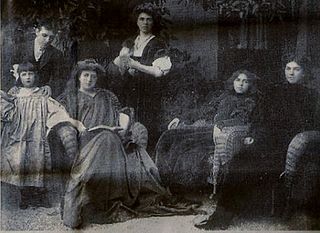
Ximena Morla Lynch (1891–1987), also known as Ximena Morla de Subercaseaux, was a Chilean feminist writer and painter. The daughter of writer Luisa Lynch and conservative politician Carlos Morla Vicuña, she had five siblings, including Carlos, a diplomat, and Carmen, a writer. Her granddaughter is the novelist Elizabeth Subercaseaux.

Carmen Morla Lynch (1887–1983), also known as Carmen Morla de Maira, was a Chilean feminist writer. The daughter of Luisa Lynch and Carlos Morla Vicuña, she wrote journals illustrated by her sister Ximena, with whom she also practiced spiritism, both as mediums. Her brother Carlos was a diplomat, writer, and journalist. She was the great-aunt of writer Elizabeth Subercaseaux.
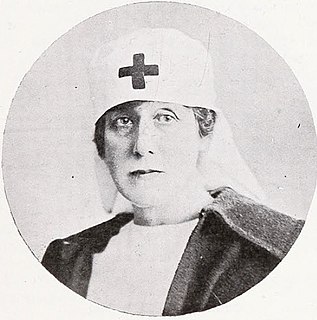
Sofía Eastman Cox, also known as Sofía Eastman de Huneeus, was a Chilean feminist writer and socialite. In 1915, she was a founder and president of the Ladies' Reading Circle, one of the first women's groups in Chile, dedicated "to promote and cultivate letters and the arts from the point of view of reception and production, and to improve the quality of education received by women." She also held the presidency of the Chilean Women's Red Cross from 1918 to 1921, an institution of which she was also one of the main benefactors and managers.
Humberto Giannini Íñiguez was a Chilean philosopher of Italian descent. A disciple and continuator of Enrico Castelli, he was a member of the Academia Chilena de la Lengua and winner of the National Prize for Humanities and Social Sciences in 1999.

Rosario Montt Goyenechea was the First Lady of Chile from 1851 to 1861, during the presidency of her husband, Manuel Montt.

Cristián Alejandro Contreras Radovic, popularly known as Dr. File, is a Chilean journalist, writer, and philosopher. He is the current leader of the political party United Center, and was also a candidate for becoming a Senator of the Metropolitan Region of Chile.













